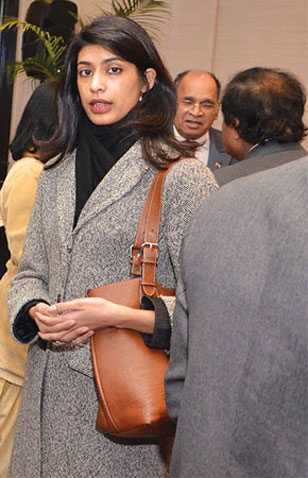"Indian Property Remains A Strong Draw For NRIS"
Anjalika Bardalai, is the Senior Analyst at Eurasia Group. She focuses on South Asian international relations and the economic and trade policies of India and Pakistan with a particular emphasis on fiscal and monetary policy. Bardalai holds a MBA degree from Imperial College Business School and has also done a B.A (honors) in Politics from New York University. Before joining Eurasia’s London headquarters, Bardalai worked at its New York office managing country finance, which covers financial institutions and financing methods in 45 countries. Anjalika’s sectoral expertise includes India’s information technology, property and financial-services industries. Prior to joining Eurasia Group, she worked with the Economist Intelligence Unit for 12 years where she held a number of different analytical and managerial roles. Bardalai not only led EIU’s economic and political forecasting and analysis for India, Pakistan and Afghanistan but she was also the manager of EIU’s Country Reports where s

According to your readings, what are the possible risks that the investors may face after the Government change?
I think the biggest risk comes from the fact that hopes and expectations are so high – possibly unrealistically high. The new government is strong and has already started trying to implement its policy of “maximum governance, minimum government”. But there will still be some challenges to advancing economic reforms, like the BJP’s lack of majority in the Rajya Sabha and the fact that much policymaking and implementation is devolved to state governments. Also, we have to bear in mind that even though India’s economy is domestically-oriented, the country is still affected by international developments. So, international commodity price shocks and growth prospects in the developed world – things which the new Indian Government has no control over – could still affect growth in India and thus investment prospects.
You have been working in Europe and America for a long time but your focus has always been on Asia. Why?
I started my career with the Economist Intelligence Unit, and at the time they hired me their need was for someone to work on Asia. So it started with a bit of serendipity, but given my Indian roots it has been a good fit. Some people ask whether it is good to focus on Asia while being based in the UK or US but I think it adds a lot of objectivity to the analysis – one doesn’t get caught up in some of the month-to-month extremes of optimism and pessimism that can happen when one is in-country. Of course, this distance has to be combined with good local contacts and frequent visits to get a proper sense of what is happening on the ground!
What do you think about predictability of Indian market?
The difficulty with assessing the Indian stock market is that it’s not all that liquid, and that there’s a very large element of speculation. The speculative aspect is quite pronounced compared to other markets. The fact that movements are driven mostly by foreign investors tends to add to market volatility since many of these investors tend to enter or exit the market at the same time.
What are booming sectors in Indian market currently?
In general, the sectors that are showing gains are the ones where there are indications or hopes that reforms will have an impact. Prominent examples are coal and mining, oil and gas, and financials. In the current environment, where there is an expectation of faster economic growth in the months ahead, one might expect cyclically-oriented sectors like consumer goods to perform strongly as well.
Which sectors in India will be best for long term investment for NRIs?
Property (real estate) remains a strong draw for NRIs; property has obvious advantages as an asset class in general, but for NRIs, Indian property has the additional potential benefit of exchange-rate benefits and, of course, of non-financial value as well in case of a desire to one day returns to India. Given the high-interest-rate environment, simple deposit accounts are also a solid bet.











Comments.